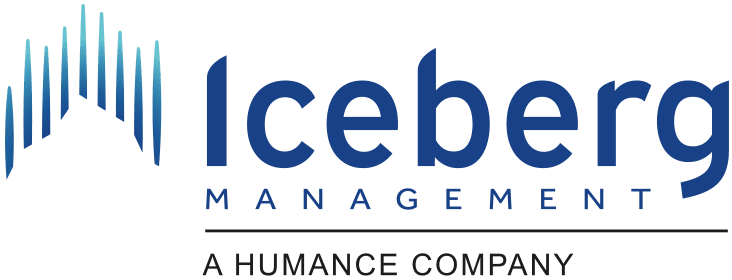
Legal compliance
January 14, 2025
Bill 68 Compliance: Simplification of absence management and impact on employers
The simplification of absence management comes in the wake of Bill 68’s amendment to the Act respecting labour standards, which aims to reduce the administrative burden on physicians. The implementation of Bill 68 has brought significant changes.
This change, in force since January 1ᵉʳ, 2025, helps simplify absence management by prohibiting employers from requesting official supporting documents for absences of three days or less, as stipulated in Bill 68.
After a reminder of the standards concerning the management of non-work-related absences, we will explain how this change impacts you as an employer.
Standards for managing non-work-related absences in general
Under the Act respecting labour standards, an employee has the right to be absent from work in the event of a non-work-related illness or accident.
His or her employment relationship is protected for a period of up to 26 weeks over 12 months.
During the period of absence, the employer may request proof of absence from the employee.
The first 2 days of absence are paid, if the employee has worked for at least 3 months and has not already used these first two days for other eligible reasons.
The reasons for absence are as follows:
- Non-work-related illness or accident.
- Family obligations (children or caregivers).
- Organ or tissue donation.
- Domestic violence, sexual violence or a criminal act.
These two paid days cannot be carried over to the following year, nor can they be replaced by financial compensation.
How does the change to the Act respecting labour standards affect employers?
This change affects the way employers manage employee absences: they can no longer require official documentation (such as a medical bill) for 1 period of absence of 3 days or less, over a 12-month period, as outlined in Bill 68.
During the period of absence of 3 days or less, evidence such as a parking ticket from a clinic or a pharmacy bill, for example, can be presented to justify the absence.
Finally, the employer will not be able to require a medical certificate in the case of absence to care for a child, parent or person for whom the person is acting as a caregiver.
This legal change, driven by Bill 68, is an opportunity for employers to lighten their administrative burden, particularly when it comes to monitoring absence tickets, and to contribute to a better working climate through the confidence that employers will have to demonstrate in their new way of managing absences.
3 steps to ensure compliance with the Act
- Review internal policies by updating your employee manual
The employee handbook is an essential tool when the law changes, as it clearly communicates the new rules, formally documents internal practices, and ensures legal compliance while reducing the risk of misunderstanding.
Employers can include a reminder of the legal framework for non-work-related absences, a presentation of the new rule concerning the absence of a medical certificate for the first three absences of the year, and include eligible absences. It can also specify that medical tickets are required for any absence of 4 days or more, in accordance with Bill 68.
- Adapt absence management processes
Modify non-compliant processes by providing absence declaration forms to identify absences, and by implementing a tool to track the first three absences.
This will enable you to know when to request a medical certificate.
- Train managers and HR staff
Offer information sessions (Lunch & Learn) to explain the legal framework, internal procedures and best practices, while emphasizing that these changes will simplify absence management.
The aim is to ensure that everyone understands their rights and obligations under the new rules set by Bill 68.
To conclude
The change to the Act respecting labour standards, which removes the requirement to provide official proof of absence for periods of three days or less, simplifies administrative management for employers while promoting a climate of trust with employees. To ensure compliance with this new rule, it is essential to update internal policies, adapt absence management processes and train managers and HR staff. To facilitate this transition and ensure effective implementation, support from our accredited HR consultants can be an invaluable asset in optimizing your practices and complying with legal obligations.
Karine Angol, CPHR
Plan a connection callAdvice Centre
Discover more inspiring content
Find out how our methodology has transformed companies from different sectors. Each article is proof of our expertise.

Performance Management
Constructive Dismissal and back to work: The Risks of Modifying Conditions for Employers & Employees
Back to work: legal consequences for employers. Find out about employees' rights when faced with unilateral changes to working conditions.

Performance Management
Identify and mitigate the Dunning-Kruger effect in your employees

Employee Coaching & Training
Putting collective intelligence to good use: the case of Strøm spa nordique
Discover how collective intelligence can prevent mental health problems in the workplace. An effective collaborative approach to psychosocial risks. A concrete example with the STROM SPA case study.

Legal compliance, Legal compliance
Bill 27 and psychosocial risk management: what are your obligations?
Bill 27: new obligations for managing psychosocial risks in the workplace. Protect your employees and adopt stress reduction measures.

Employee Coaching & Training, News & Editorials, Organizational Structure
Reducing Stress and Building Resilience: A Winning Strategy for Sustainable Well-Being and Performance at Work
Workplace well-being as a strategic lever for sustainable performance - strengthening employee resilience.

Legal compliance, Legal compliance
Bill 42: preventing and combating psychological harassment and sexual violence in the workplace: what are your obligations?
Discover the changes brought about by Bill 42 to better protect workers against psychological harassment and sexual violence.

Culture and Health Wellness
French is going backwards, yet it can move forward !
Discover the challenges of francization in Quebec: legal obligations, impact on the

Culture and Health Wellness
Bore-out: Understanding and preventing boredom at work in your teams
Discover bore-out, a worrying phenomenon in the professional world. Learn to recognize the signs of exhaustion linked to boredom and underworkload.

Culture and Health Wellness
Returning from maternity leave with peace of mind: a shared responsibility
Manage your employees' return from maternity leave efficiently and promote their well-being at work.

Performance Management
5 reactions to have when an employee gets emotional during a contribution appreciation meeting?
Learn how to handle emotional moments during appraisal meetings. Stay calm, understanding, and create a respectful atmosphere for productive discussions.

Legal compliance
Act 25 : Compliance challenges for businesses
Act 25 in Quebec: protect your customers' personal data. Learn how to comply with this essential regulation.

Culture and Health Wellness
